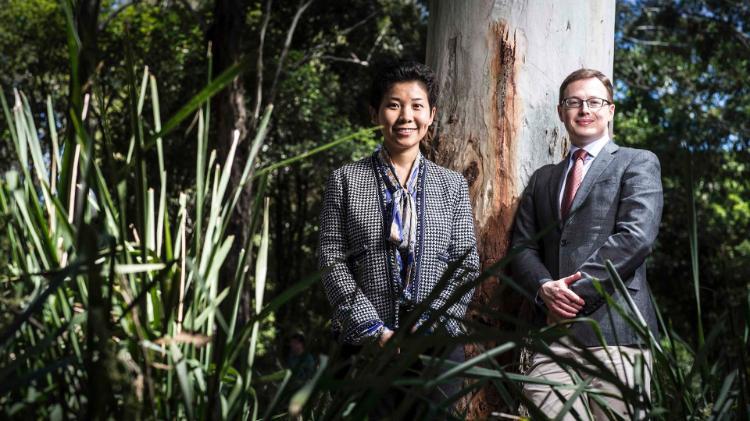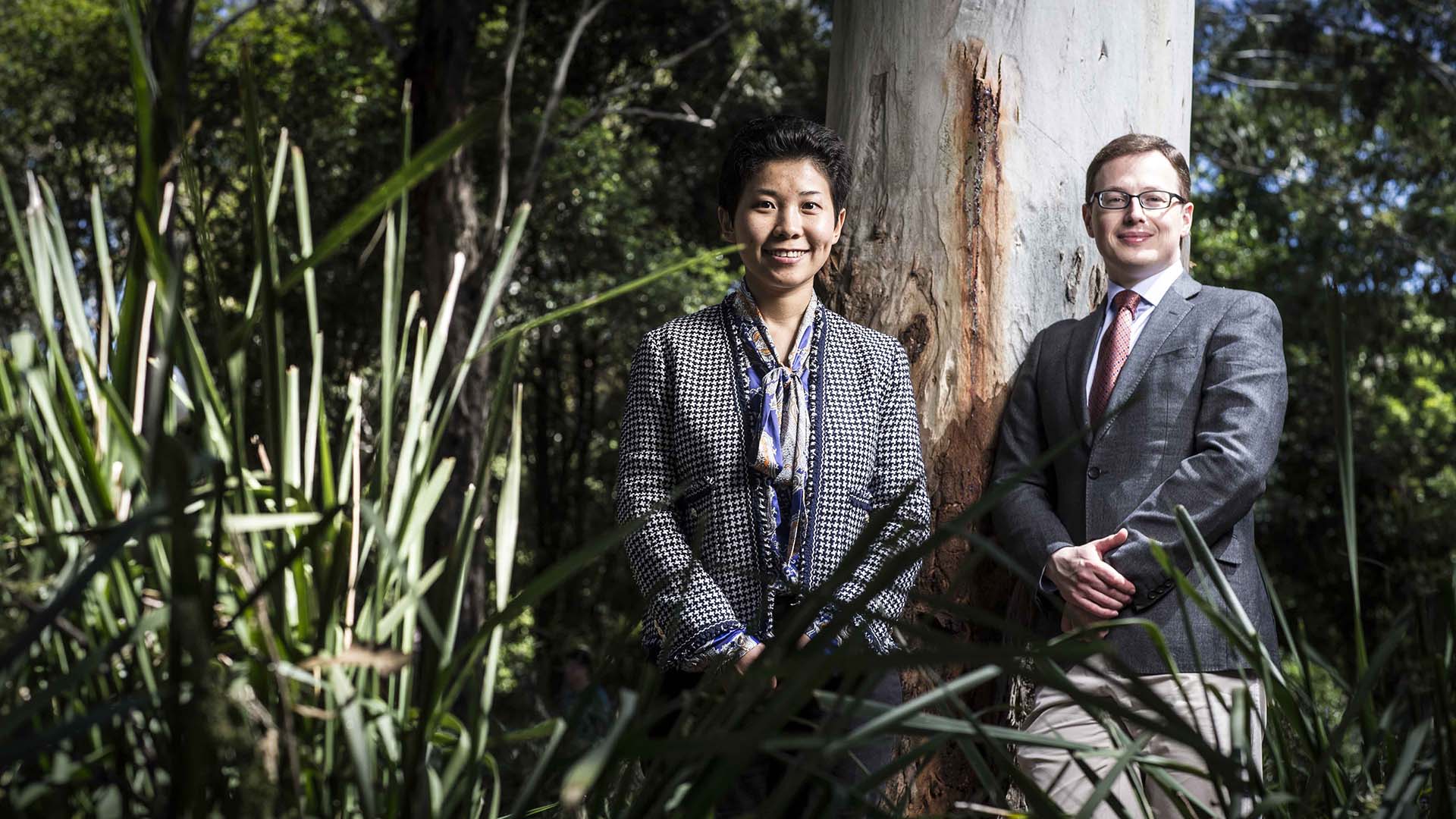July 27, 2019
Urban trees found to improve mental and general health
Study shows adults in leafy neighbourhoods have lower risk of developing psychological distress
People in urban areas have a lower risk of developing psychological distress and better overall health if they have more trees within a walkable distance from their homes, a study by University of Wollongong (UOW) researchers has found.
In neighbourhoods with a tree canopy of 30 per cent or more, adults had 31 per cent lower odds of developing psychological distress, and 33 per cent lower odds of rating their general health as “fair” or “poor” over six years.
Urban green spaces with open grass rather than a tree canopy did not deliver the same benefits.
The longitudinal study tracked the changes in health of around 46,000 people aged 45 and older living in Sydney, Newcastle and Wollongong. Statistical analyses took into account other possible explanations, including differences in age, sex, income, education, employment status, and relationship status.
The study’s lead author, Professor Thomas Astell-Burt, an NHMRC Boosting Dementia Research Leadership Fellow at UOW, said while other studies had indicated that green space was good for mental health, this new research specifically looked at whether the type of green space made a difference.
“Our results suggest the type of green space does matter,” Professor Astell-Burt said.
“We found that the residents of neighbourhoods with a higher amount of tree canopy had better mental and general health, but didn’t find the same correlation when the type of green space was open, grassed areas.
“This suggests that protecting and increasing the urban tree canopy could potentially deliver significant community health benefits, and it’s great to see this in the NSW Premier’s new priorities.”
There are a number of reasons why trees could be beneficial to our health said Associate Professor Xiaoqi Feng, an NHMRC Career Development Fellow at UOW.
One obvious benefit was that trees provide shading and reduce city temperatures on hot days.
Other benefits are more subtle. Green, leafy trees can provide sensory relief in urban areas dominated by hard surfaces, right angles, glass and concrete, and intrusive, attention-seeking advertising.
“The vibrant colours, natural shapes and textures, the fresh aromas and rustling of leaves in the breeze all provide distraction and relief from whatever it was you might have been thinking about, or even stressing over,” Associate Professor Feng said.
“Studies back this up. Walks through green space have been shown to reduce blood pressure, improve mental acuity, boost memory recall and reduce feelings of anxiety.”
Tree cover also provide spaces where people can benefit from interacting with each other and with animals, such as birdwatching and walking dogs, which can all be good for our mental health.
ABOUT THE STUDY
‘Association of urban green space with mental health and general health among adults in Australia’, by Thomas Astell-Burt and Xiaoqi Feng, is published in JAMA Network Open.
This project was funded by the Hort Frontiers Green Cities Fund, part of the Hort Frontiers strategic partnership initiative developed by Hort Innovation, with co-investment from the UOW Faculty of Social Sciences, the UOW Global Challenges initiative and contributions from the Australian Government.
Professor Thomas Astell-Burt was supported by a National Health and Medical Research Council (NHMRC) Boosting Dementia Research Leadership Fellowship. Associate Professor Xiaoqi Feng was supported by a NHMRC Career Development Fellowship.

Associate Professor Xiaoqi Feng and Professor Thomas Astell-Burt from UOW's Population Wellbeing and Environment Research Lab (PowerLab). Picture: Paul Jones, UOW
